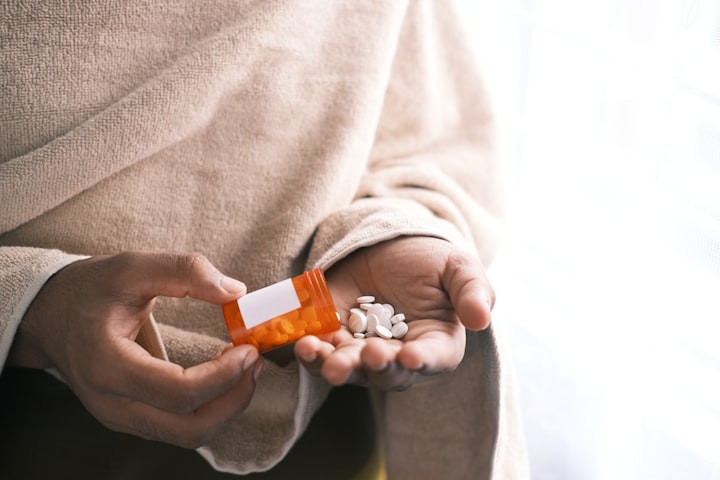Navigating Recovery: How Drug Testing Enhances Addiction Treatment
Empowering Recovery: Understanding the Impact of Drug Testing in Addiction Treatment

Introduction
Addiction is a complex, multifaceted issue that affects millions of individuals and their families worldwide. It's a journey that often involves several stages: realization, acceptance, treatment, and recovery. Within this framework, drug testing plays a crucial, albeit sometimes misunderstood, role.
This blog post aims to demystify the function of drug testing in addiction treatment and highlight how it can be a pivotal tool in navigating the path to recovery.
The Role of Drug Testing in Addiction Treatment
Drug testing isn't just about confirming the presence or absence of substances in a person's body. It's a strategic tool that can facilitate numerous aspects of addiction treatment:
1. Assessment and Diagnosis: Initial drug tests can help clinicians accurately assess the substance use disorder's severity. This information is vital in tailoring treatment plans to the individual’s specific needs.
2. Treatment Planning: Understanding the types of substances used and their frequency can guide clinicians in designing effective treatment strategies, including medication-assisted treatment (MAT), counseling, and behavioral therapies.
3. Monitoring Progress: Regular drug testing provides objective data on the individual's progress. It helps in evaluating the effectiveness of the treatment plan and making necessary adjustments.
4. Building Trust and Accountability: For individuals in treatment, passing a drug test can be a significant morale booster. It builds trust between the patient and the treatment provider and enhances the patient's sense of accountability and responsibility towards their recovery.
5. Supporting Relapse Prevention: Drug testing can serve as an early warning system for potential relapses, allowing for timely intervention and support to prevent a full-blown relapse.
Addressing Concerns and Ethical Considerations
Despite its benefits, drug testing in addiction treatment can raise concerns:
• Privacy and Confidentiality: Ensuring that test results are kept confidential is paramount. Patients should be informed about who will have access to their test results and how they will be used.
• Stigma and Judgment: It's crucial to approach drug testing without judgment. The goal is to support recovery, not to punish or shame the individual.
• Accuracy and Reliability: False positives or negatives can occur. It's important for treatment centers to use reliable testing methods and have protocols for retesting if needed.
Incorporating Drug Testing into a Comprehensive Treatment Approach
Drug testing should be part of a broader, holistic approach to addiction treatment, which may include:
1. Therapy and Counseling: Addressing underlying psychological issues and providing tools for coping with cravings and avoiding triggers.
2. Peer Support and Group Therapy: Engaging with others who are facing similar challenges can provide valuable support and insight.
3. Family Involvement: Involving family members in the treatment process can enhance support systems and improve treatment outcomes.
4. Aftercare and Ongoing Support: Long-term follow-up and support are critical for maintaining sobriety.
Conclusion
Drug testing, when used thoughtfully and ethically, can significantly enhance the effectiveness of addiction treatment programs. It provides valuable information for personalized treatment planning, helps in monitoring progress, and supports relapse prevention efforts. However, it's essential to remember that drug testing is just one component of a comprehensive treatment plan. Successful recovery requires a combination of professional medical support, therapy, peer and family support, and ongoing commitment to sobriety. As we navigate the complex journey of recovery, let's view drug testing as a valuable ally in the fight against addiction.
FAQs
How does drug testing contribute to the success of addiction treatment programs?
Drug testing plays a crucial role in addiction treatment by providing objective data about substance use. It helps in assessing the severity of addiction, tailoring treatment plans, monitoring progress, encouraging accountability, and aiding in relapse prevention.
Is drug testing in addiction treatment programs mandatory?
The requirement for drug testing varies depending on the treatment program and its policies. In some cases, it might be mandatory, especially in programs that follow certain legal or medical protocols. It's important for individuals to understand the policies of their specific program.
Can drug tests give false positives or negatives, and how is this handled?
While drug testing technology is highly accurate, false positives or negatives can occasionally occur. Treatment centers usually have protocols for retesting and validating results to ensure accuracy. Discussing concerns about test accuracy with the treatment provider is important.
Will my drug test results be kept confidential?
Yes, drug test results are confidential and are protected under privacy laws like HIPAA in the United States. Information about your test results is only shared with authorized personnel involved in your treatment.
How can drug testing be supportive rather than punitive in addiction treatment?
The approach to drug testing in addiction treatment should be supportive, focusing on recovery and progress rather than punishment. It's used as a tool to help individuals understand their own progress, identify potential relapses early, and adjust treatment plans as necessary. Open communication and a non-judgmental attitude from healthcare providers are key to ensuring that drug testing is a supportive part of the treatment process.






Comments
There are no comments for this story
Be the first to respond and start the conversation.